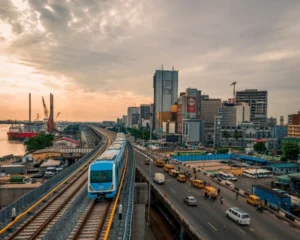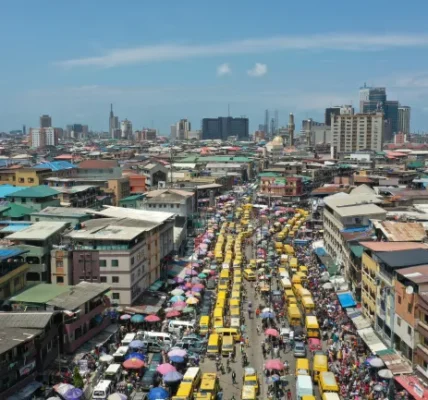
Former Lagos State Governor, Babatunde Raji Fashola (SAN), has raised concerns over the increasing practice of renaming historic streets in Lagos, urging stakeholders to respect the legacy behind these names. Eyes Of Lagos reports,
Speaking at the public presentation of “Discover Lagos State: A History Puzzle Book (Volume 1)” held at the Civic Centre, Victoria Island, Fashola emphasized the need to preserve Lagos’s cultural and historical identity.
According to Fashola, indiscriminate street renaming risks erasing the valuable contributions of notable Nigerians who helped shape Lagos. He cited Dr. Isaac Ladipo Oluwole, the first African Medical Officer of Health in Lagos, as a prime example. Dr. Oluwole pioneered school health services and established Nigeria’s first School of Hygiene in Yaba in 1920. In his honour, Ladipo Oluwole Street in Ikeja was named — a gesture Fashola insists should be protected, not undone.
“We must ask ourselves why these streets were named after certain individuals. These names tell stories of vision, sacrifice, and excellence,” Fashola noted, cautioning that removing such names could lead to historical amnesia.
Fashola also urged for stronger support for the Lagos State Records and Archives Bureau (LASRAB), the agency behind the puzzle book. He highlighted LASRAB’s efforts not just as an educational body, but as a key institution in preserving Lagos State’s heritage.
Representing Governor Babajide Sanwo-Olu, Deputy Governor Dr. Obafemi Hamzat praised the book as an innovative tool for building historical awareness among the youth. He also acknowledged Fashola’s administration for initiating policies that archived state documents and promoted heritage conservation.
“Understanding our history helps us understand ourselves. This book is both educational and entertaining — a step in the right direction,” Hamzat stated.
The event served as a clarion call for Lagosians and policy-makers to value historical documentation and protect the legacies of those who laid the foundation for modern Lagos.







